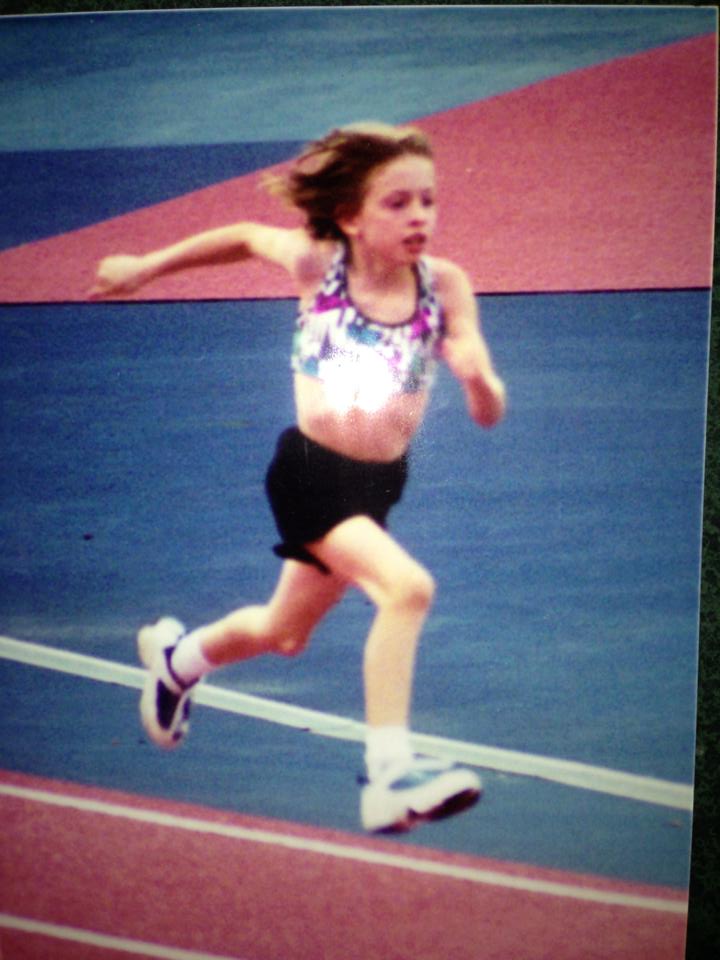Guest Post: Brittany Burgunder’s Battle
I (Rachael) have included a link near the end of this piece to an article on depression, a mental struggle I had not dealt with but I know many others like Brittany have. Thus, this post is sponsored by BetterHelp.com. I received compensation as a thank-you for my participation, and believe offering links to resources like BetterHelp may helpful to some.
~
I came across Brittany’s blog about a year ago and found her eating disorder struggle similar to my own. Certainly, Brittany’s drastic weight fluctuation in a small amount of time is relatable to me as well as many more of us, and shows that the problem lies not in appearance, but in our attitude toward food. Just like me, Brittany is also in the process of getting a memoir published about her eating disorder experiences. I’m so glad Brittany was willing to share her journey as well as the struggles she still encounters on a daily basis, as I believe eating disorders should be monitored even in recovery.
My name is Brittany and I want to let you all know no matter what you are struggling with that there is always hope for a better life. For me, my major life struggle was with my weight and appearance. Growing up I was constantly bullied and teased and I never had a close friend; only acquaintances to say hi to so I didn’t seem like a complete and utter loser. I was always a great student and a very talented tennis player and horseback rider to top it off, but that didn’t matter. My self-esteem was nonexistent and every day I wondered what was so wrong with me that I didn’t fit in like everyone else. Instead of realizing there was nothing wrong with me other than I was shy and insecure, I turned my anger and sadness inward.
When I was 13 I fell victim to anorexia and exercise addiction. I was never overweight to begin with, but this newfound coping skill to deal with my loneliness and disgust for myself soon took over my life. I couldn’t control other’s behaviors towards me, nor could I control whether I became a professional tennis player or not, but what I did believe I could control was my weight and that led me down a road more lonely than anything I had ever imagined. I spent the next 7 years in and out of the top treatment centers and hospitals only to have doctors and therapists come to the same conclusion: “She’s hopeless.”
At the beginning of 2009, it looked as if I had finally lost my battle. I became so sick that I got asked to leave my freshman year of college by the university. I wasn’t allowed back until I achieved certain health requirements. So began my next 6 months in a hospital on the brink of death. With my weight dropping to X pounds, I lost all my hair, faced liver failure, had to relearn how to walk, couldn’t think or recognize people, went bald, and was given almost no chance to survive. The Universe must have had other plans for me because miraculously I pulled through.
The night of August 15, 2009, would change my life forever. I binged. After 8 years of controlling, resisting, and depriving myself of food, I gave in. It was the most exhilarating, wonderful, and scariest sensation I’ve ever experienced and I didn’t know how to stop. I was now X pounds and climbing. What I didn’t realize was that I had traded bingeing for anorexia. My disease took on an entirely new appearance even though it was the same inner demons driving it from the inside. As my body changed quicker than I could comprehend I found myself in a trance of disbelief. I shut myself in my house; embarrassed that someone I knew might see me looking so drastically different. I would only leave to buy food so that I could binge. By the middle of 2010, I had hit rock bottom again, but this time on the opposite side of the scale. A stranger is all the mirror would ever reveal to my eyes, but the scale confirmed my illusion and worst nightmare as the digital number 221 flashed before me.
It took many difficult years of patience, hard work, and a little hope, but I have now completely turned my life around. I’m healthy, I’m happy, I have good friends and I’m learning to love who I am flaws and all. My eating disorder was an outward expression of how I felt about myself on the inside. It was never about weight. It was about walking a self-destructive path based on a false belief that I was never good enough, loveable, or acceptable… but I am.
Recovery has been the hardest thing I have and ever will do in my life. There was a while where I questioned my life over and over wondering why me? How could something so awful rob so many years of my life and then spit me back out? I wanted to make sense of the madness, but the more I looked back the more stuck I became. There came a point where I had to learn to let go in order to let in what was meant to be all along.
After many years filled with restricting, over-exercising, bingeing, laxatives, colonics, hospitals, treatment centers, fat camps, depression and loneliness* I have written a book composed of mainly journal entries I kept. Safety In Numbers offers an honest-first hand look into the unthinkable. Ultimately it brings hope and the courage to never give up. I hope it will be published within the next year.
I am currently finishing my psychology degree at Cal Poly and am back to training competitively for tennis. Please know you are never alone, there are good people out there and you can build the most beautiful life no matter how many odds are stacked against you. Feel free to stay in touch and connect with me. I believe in you all.
*This post was sponsored by BetterHelp.com
Email: bburgunder [at] charter [dot] net









Thank you Rachael for sharing Brittany Burgunder’s blog post. Eating disorders are confusing to the friends and family watching their daughter, sister, or best friend inflict pain on their bodies. From reading Brittany’s post and your previous posts, I’m starting to understand that the shrinking body that accompanies an eating disorders is only an echo of the pain inside. People focus on the outward appearance of the victims of an eating disorder–the protruding bones, sallow skin, dental decay–and dismiss the depression, loneliness, and the yearning for control over the uncontrollable that creates the disorder.
Rachael, I thought it was powerful how you emphasized in the beginning of the post the gravity with which eating disorders should be regarded: “Eating disorders are not petty, adolescent “stages” we go through, but intense, unhealthy, and growing problems that must be addressed at any and all stages of intensity.” This idea is evidenced in Brittany’s story, as the reader experiences the internal and external pain she felt at the different stages of her eating disorder. The eating disorder consumes her thoughts and actions at 56 pounds and 221 pounds, proving that outward appearance doesn’t necessarily correlate to one’s relationship with food.
Parts of this piece were so unsettling that I winced as I was reading, especially the comment, “With my weight dropping to a low of 56lbs I lost all my hair, faced liver failure, had to relearn how to walk, couldn’t think or recognize people, went bald and was given almost no chance to survive.” Brittany’s description of her eating disorder is so raw and vivid that it provokes a compassionate response from the reader. It’s an accurate, yet alarming description of an outward expression of internal pain.
While I’m sure many more details are included in Brittany’s book, I found myself wondering about Brittany’s family, and what it was like watching someone they loved shrink to the size of a child. I also wanted to know what it feels like to have a stomach so empty, or how she dealt with rituals that involve food, like dinnertime with the family or accepting a slice of birthday cake at a party. The progression of the story from depression to disorder to recovery to disorder to health kept me hooked, but there are still so many things I want to know about the author and this difficult time in her life.
I think it’s great that you informed other people about eating disorders. I don’t think people realize how hard it is to deal with something that is so degrading and so compulsive and so hard on one’s life. It’s like the demon that eats your insides, and no matter how painful it is, and no matter how hard you try, you can’t make it stop. The demon controls you, even though you still have your own volition. But its possession, even though not entirely ultimate, is strong to a very large degree. Fighting the possession takes a lot of effort, but it exhausts you in the end. It’s like depression. Everything you see is sadness; everything you know is sadness; every time you try to get out of bed, you feel weak and feeble, like deadbolts are attached to your legs, preventing them from moving, and a sadistic Arnold Schwarzenegger happens to place a seven-hundred-pound dumbbell on your chest while you were sleeping to see what would happen when you woke up, amusing himself as you struggle to lift your own chest and get on with life. Treatment there can be hard, too. You want to get on with life, but everything is hopeless. Sadness surrounds you; there is no point to life. Fighting it is futile. But if you get help, you can stop it. I think it’s great, Brittany, that you are informing people of the nature of eating disorders and that you can help people understand and empathize with people who suffer from them. It’s a good way to achieve social justice, and I congratulate you on it. I also pray that you are doing well, and may God bless you in all that you do. :)